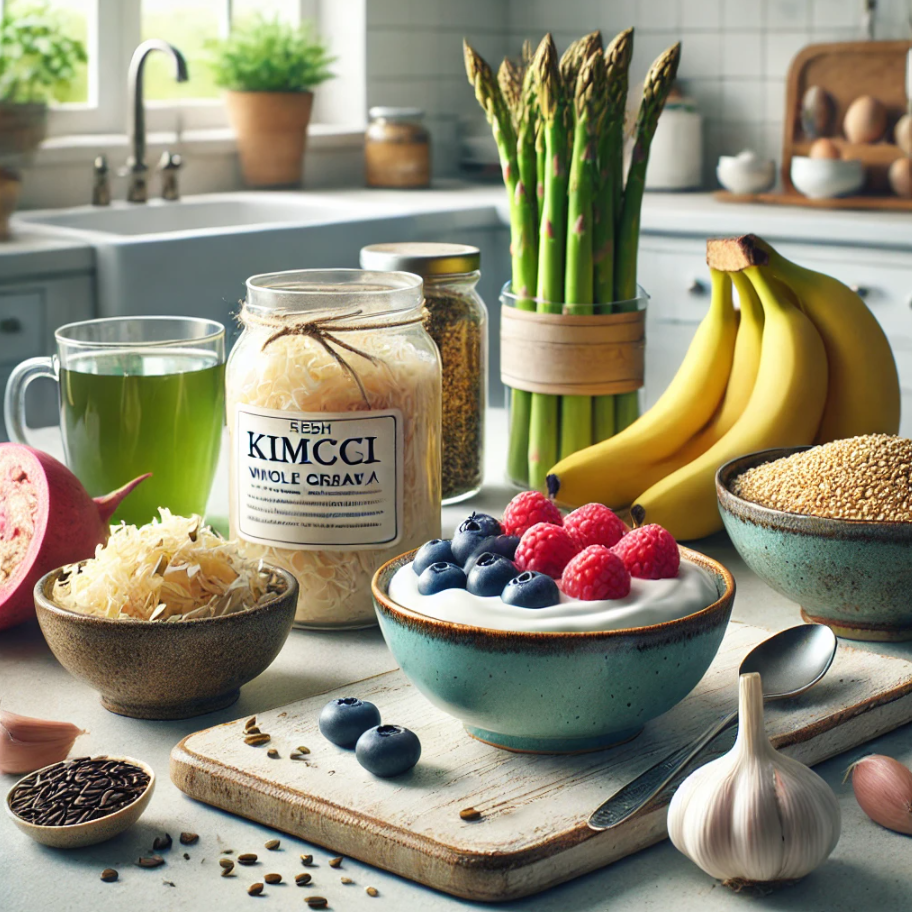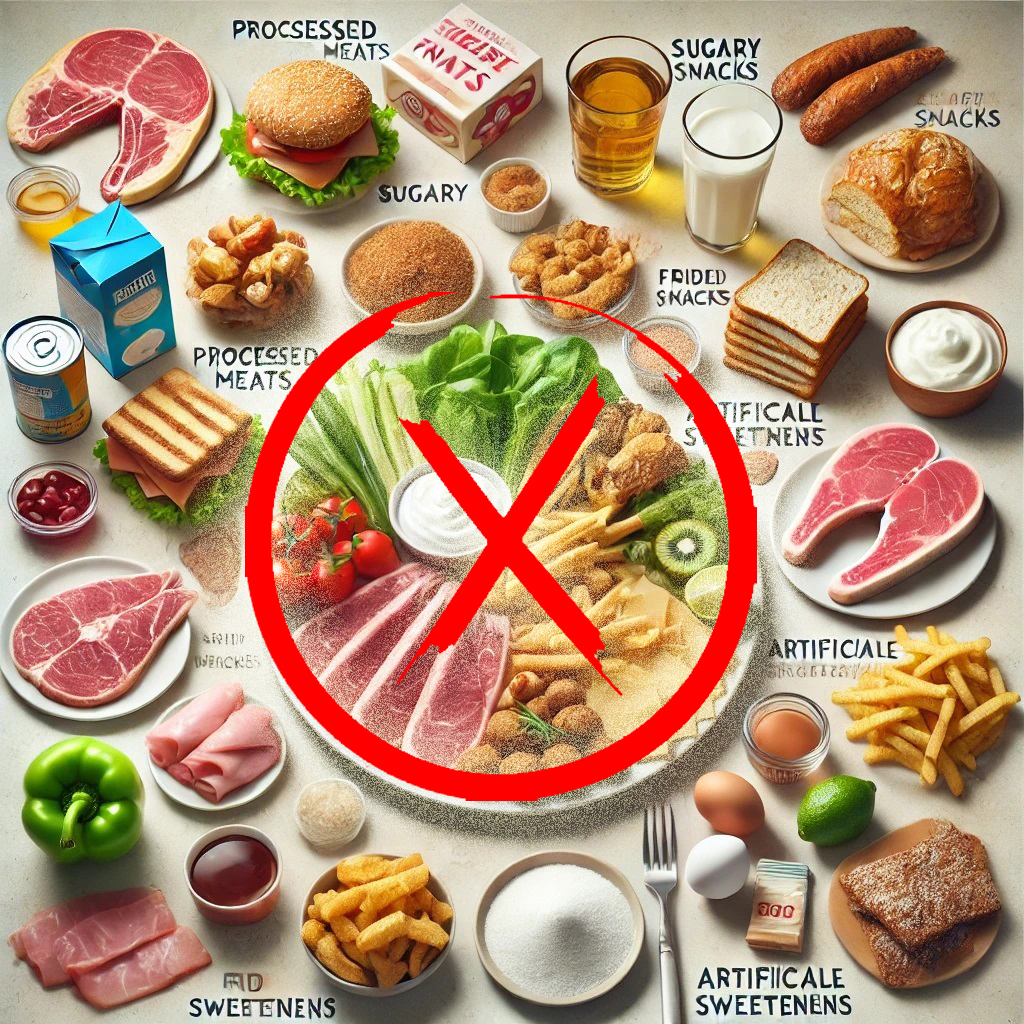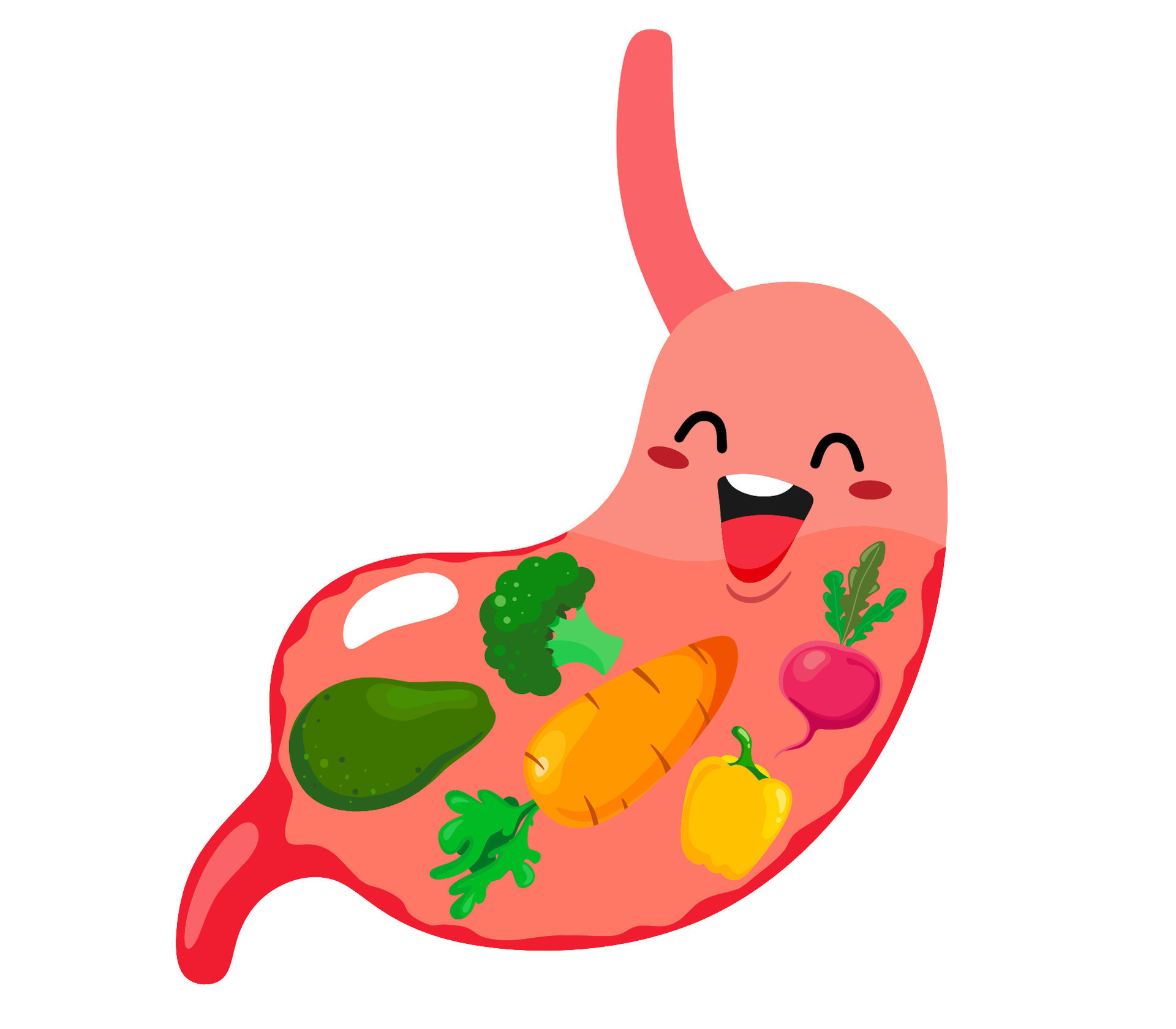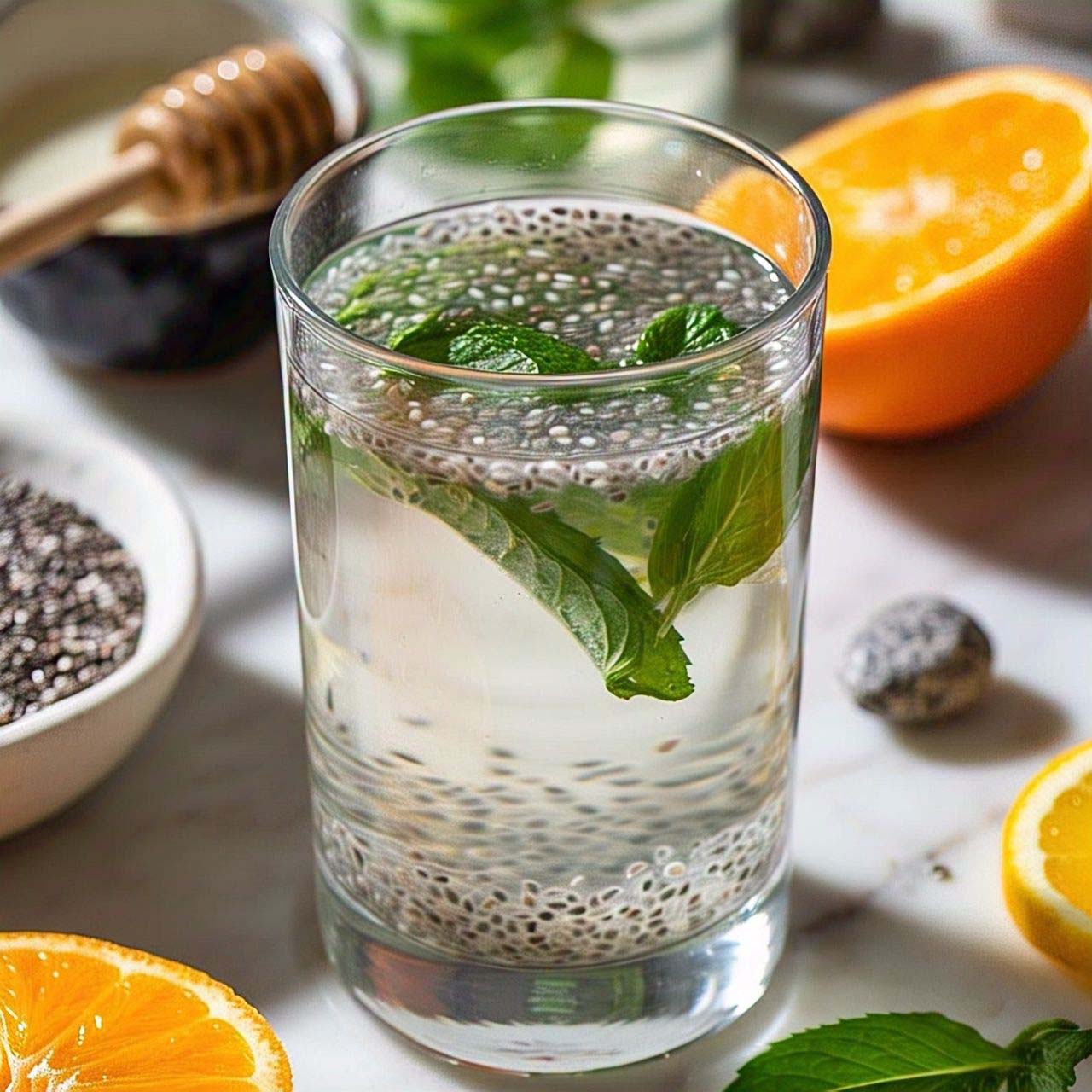Gut health has become a hot topic in recent years, and for good reason. Our digestive system does far more than just break down food — it affects everything from immunity to mood and even brain function. Maintaining good gut health is essential for overall wellness, and what you eat plays a crucial role in keeping your stomach happy and functioning optimally.
In this guide, we will explore the importance of gut health, the best foods to support it, scientific insights from Harvard and the World Health Organization (WHO), and a real-life case study demonstrating the power of diet in improving gut health.
Why Gut Health Matters
Your gut, or digestive tract, is home to trillions of microorganisms collectively known as the gut microbiome. These bacteria, viruses, fungi, and other microbes help digest food, produce essential vitamins, regulate your immune system, and even influence mental health.
An imbalance in your gut microbiome, called dysbiosis, can lead to digestive issues like bloating, constipation, and diarrhea, as well as chronic conditions such as obesity, diabetes, and autoimmune diseases. Research from Harvard Medical School highlights the link between gut bacteria and systemic inflammation, which can contribute to chronic diseases.
Maintaining gut health is not just about comfort — it’s about preventing serious health issues and enhancing your quality of life.
Key Signs Your Gut Needs Attention
- Frequent bloating or gas
- Irregular bowel movements (constipation or diarrhea)
- Food intolerances or allergies
- Fatigue and brain fog
- Skin problems like acne or eczema
- Autoimmune symptoms or frequent infections
If you experience these, it’s a good idea to evaluate your gut health and dietary habits.

What to Eat for a Happy Stomach
Diet is one of the most powerful tools for supporting gut health. The right foods nourish the beneficial bacteria and strengthen the gut lining. Let’s explore the best types of foods to include.
Probiotic-Rich Foods: Feeding the Good Bacteria
Probiotics are live beneficial bacteria that can improve the balance of your gut microbiome.
Examples of Probiotic Foods
- Yogurt: Contains live cultures like Lactobacillus and Bifidobacterium.
- Kefir: A fermented milk drink with a diverse array of probiotic strains.
- Sauerkraut: Fermented cabbage rich in probiotics and fiber.
- Kimchi: A spicy Korean fermented vegetable dish with probiotic benefits.
- Miso: A fermented soybean paste used in soups and sauces.
- Tempeh: Fermented soy product that provides probiotics and protein.
Regular consumption of these foods can increase beneficial bacteria and improve digestion.
Prebiotic Foods: Fuel for Your Gut Microbes
Prebiotics are types of fiber that human enzymes can’t digest but serve as food for probiotics.
Prebiotic-Rich Foods
- Garlic
- Onions
- Leeks
- Asparagus
- Bananas (especially slightly green ones)
- Jerusalem artichokes
- Chicory root
- Whole grains like barley and oats
Including prebiotic foods helps beneficial bacteria flourish, leading to a healthier gut environment.
Fiber: The Gut’s Best Friend
Dietary fiber is essential for gut health. It promotes regular bowel movements and acts as a substrate for bacterial fermentation producing short-chain fatty acids, which maintain the gut lining.
High-Fiber Foods to Include
- Fruits (apples, pears, berries)
- Vegetables (broccoli, carrots, leafy greens)
- Legumes (beans, lentils, chickpeas)
- Whole grains (brown rice, quinoa, oats)
- Nuts and seeds
A fiber-rich diet reduces inflammation and supports a diverse microbiome, according to WHO dietary guidelines.
Polyphenol-Rich Foods: Natural Gut Protectors
Polyphenols are plant compounds with antioxidant properties that can support beneficial gut bacteria and reduce inflammation.
Foods High in Polyphenols
- Berries (blueberries, strawberries)
- Green tea
- Dark chocolate (in moderation)
- Red wine (in moderation)
- Olive oil
- Nuts
- Coffee
Harvard research suggests polyphenols enhance the growth of healthy bacteria and promote gut barrier integrity.
Hydration and Gut Health
Drinking plenty of water supports digestion and nutrient absorption. It also helps fiber work efficiently to keep stool soft and regular.

Foods to Avoid for Optimal Gut Health
While focusing on what to eat, it’s equally important to avoid foods that harm gut health.
- Processed Foods: High in sugars, unhealthy fats, and additives.
- Artificial Sweeteners: Linked to gut dysbiosis.
- Excessive Alcohol: Can damage gut lining and microbiome.
- Red and Processed Meats: Associated with inflammation.
- High Sugar Intake: Feeds harmful bacteria and yeast.
Reducing these foods can decrease gut inflammation and improve microbiome diversity.
Scientific Research Supporting Gut-Healthy Diets
WHO Recommendations on Diet and Gut Health
The World Health Organization emphasizes a diet high in fiber, fruits, vegetables, and limited in processed foods to maintain digestive health and prevent non-communicable diseases. WHO data shows that increasing fiber intake reduces the risk of colon cancer and cardiovascular diseases.
Harvard’s Gut Microbiome Insights
Harvard Medical School research highlights how diet shapes the gut microbiome. Their studies show that plant-based diets rich in fiber and polyphenols promote a diverse and balanced microbiome, which is linked to lower inflammation, better weight management, and improved mental health.
Real-Life Case Study: Transforming Gut Health Through Diet
Background
A 45-year-old woman named Sarah suffered from chronic bloating, irregular bowel movements, and fatigue for years. Conventional treatments offered only temporary relief. She decided to overhaul her diet focusing on gut health.
Intervention
Sarah adopted a diet rich in:
- Probiotic foods (daily yogurt and kimchi)
- Prebiotic foods (onions, garlic, asparagus)
- High fiber fruits and vegetables
- Polyphenol-rich foods (green tea, berries)
- Whole grains and legumes
- Eliminated processed foods, sugary drinks, and reduced alcohol
She also increased water intake and practiced mindful eating.
Outcome
Within 3 months, Sarah experienced:
- Significant reduction in bloating and gas
- Regular, comfortable bowel movements
- Increased energy and mental clarity
- Weight stabilization and improved mood
She continued this lifestyle long-term and remained symptom-free with improved overall wellbeing.
This case reflects findings from multiple scientific studies linking diet changes to improved gut microbiota and digestive health.
Tips for Maintaining a Happy Gut Daily
- Eat a variety of colorful fruits and vegetables daily.
- Incorporate fermented foods regularly.
- Choose whole grains over refined grains.
- Drink at least 8 glasses of water a day.
- Limit intake of processed and sugary foods.
- Manage stress with mindfulness or yoga.
- Get regular exercise to promote gut motility.
- Avoid unnecessary antibiotics and consult your doctor about probiotics if needed.
Frequently Asked Questions About Gut Health
What is the gut microbiome?
The gut microbiome is the community of trillions of microorganisms living in your digestive tract that helps digest food, fight pathogens, and regulate the immune system.
How does fiber improve gut health?
Fiber acts as food for beneficial gut bacteria, helps produce important short-chain fatty acids, and promotes regular bowel movements.
Can gut health affect mental health?
Yes, the gut-brain axis connects gut microbes with brain function, influencing mood, anxiety, and cognitive function.
Are probiotics safe to take daily?
For most people, probiotic-rich foods are safe and beneficial daily. Supplements can help but should be taken with medical advice.
Conclusion
Gut health is foundational to overall wellness and can be significantly improved by making smart dietary choices. Incorporating probiotic and prebiotic foods, fiber, and polyphenols while avoiding processed and sugary foods creates a nurturing environment for your gut microbes. Backed by research from WHO and Harvard, and proven through real-life case studies, these dietary habits will lead to a happy stomach and a healthier you.
Start making gut-friendly food choices today and feel the difference in your digestion, energy, and mood!






Wow, those visuals really complement your writing perfectly!
🖼️ I appreciate how you’ve used imagery to illustrate your points so effectively.
Thanks !